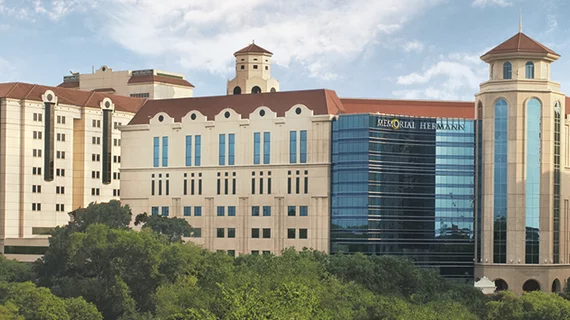Baylor Scott & White, Memorial Hermann announce merger plans
Baylor Scott & White Health and Memorial Hermann Health System announced plans to merge their systems on Monday, Oct. 1.
The merger—which is expected to be complete in 2019—would mean the combined system would have 68 hospital campuses, more than 1,100 care delivery sites and nearly 14,000 employed, independent and academic physicians. It would also have executive and support staff based in Austin, Dallas, Houston and Temple, Texas.
“As two of the most comprehensive not-for-profit health systems in Texas, Baylor Scott & White Health and Memorial Hermann, both founded as faith-based organizations, share similar missions and values,” the announcement stated. “Equally important, they share like-minded, forward-thinking visions for the future. This proposed combined health system is positioned to become a national model for integrated, consumer-centric, cost-effective care.”
According to the companies, the executive leadership team for the combined system will feature people from both organizations.
Current Baylor Scott & White Holdings board of trustees chair Ross McKnight will serve as chair of the board for the combined system. Jim Hinton, current CEO of Baylor Scott & White Health, will be CEO of combined system.
Hinton will be joined in the proposed office of the CEO by Chuck Stokes, president and CEO of Memorial Hermann, and Pete McCanna, president of Baylor Scott & White Health.
“This is about two mission-driven organizations—both committed to making safe, high-quality healthcare more convenient and affordable—building something transformative together,” Hinton said in a statement. “We must lead the change in our industry, while insisting we continue to fulfill our unwavering commitments to meeting the needs of all Texans.”

